iTunes hacked! Apple ignores it

It is now over eight months since I first reported to you my experience of getting hacked on iTunes. Last June, hackers found a way into my iTunes account using Sega's Kingdom Conquest -- a game I never downloaded. I was bilked out of $95.30, which the hackers stole from my account through iOS' in-app purchase mechanism.
Within hours of posting that story, I was flooded with dozens -- if not hundreds -- of similar stories. Initially, they were similar to mine and involved Kingdom Conquest, but additional reports indicated other games are being used to break into iTunes accounts worldwide.
It's not because of iPhone 4S
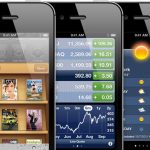
That's again my reaction to startling US mobile numbers that Nielsen released today. Like comScore, Nielsen shows dramatic -- and I mean absolutely stunning -- changes in Android and iPhone adoption since the 4S shipped. Android share, as measured in smartphone operating systems among new purchasers, plummeted from 61.6 percent in October to 46.9 percent in December. Meanwhile, iPhone rose from 25.1 percent share to 44.5 percent. Distribution -- not release of iPhone 4S -- is reason, or so I say.
Nielsen, naturally sees something else: "The high-profile launch of Apple’s iPhone 4S in the Fall had an enormous impact on the proportion of smartphone owners who chose an Apple iPhone" -- that would be for November and December. But that simplistic analysis overlooks mitigating factors. Among the most important -- 43 percent of new buyers chose older iPhones 4 or 3GS.
iPad invades the enterprise
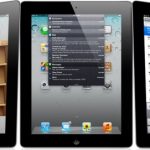
Last week I chimed: "Only Windows 8 can save the PC market now". Weak consumer computer sales forebode market shifts ahead, but so do those in the enterprise. An IDG Connect study reveals just how much: IT and business decision makers are augmenting or replacing PCs with iPads at an alarming rate.
"Fully 51 percent of IT and business decision-makers say they always use their iPad at work", according to the report -- and, of course, that's the number who actually own the tablet. Sixteen percent have replaced their laptop with an iPad and 54 percent supplement it. Remember, these numbers are for people responsible for corporate computing. As the wind shifts in their sails -- or should that be sales -- so does it eventually across the computing infrastructure. The data suggests that iPads are significantly starting to cannibalize PC sales -- and not just among consumers -- and it's consistent with recent global PC buying trends.
Everything you need to know about e-textbooks before Apple gets involved

Apple is holding an education-themed event this week, and the usual gamut of unnamed sources and rumor-mongers have come to the consensus that the event will focus on Apple's plans to enter the e-textbook business, and possibly unveil a new interactive e-book publishing platform.
This rumor springs from the best-selling biography of late Apple CEO Steve Jobs, in which Jobs' biographer Walter Isaacson said textbooks were "the next business [Jobs] wanted to transform," and that the company had already had several series of meetings about making Apple e-textbooks a reality.
Only Windows 8 can save the PC market now

Three days ago, near the end of his last Consumer Electronics Show keynote, Microsoft CEO Steve Ballmer boomed: "There's nothing more important at Microsoft than Windows". He better mean it, because the Windows PC is in big trouble. Fourth-quarter US personal computer sales were outright disastrous, while overall 2011 global growth was the worst since 2001. Recession that year devastated PC shipments, despite Windows XP's late-year launch.
There is no single reason for weak shipments during fourth quarter, when holiday sales typically give PCs a boost: Economic crisis in Europe, hard drive shortages following flooding in Thailand and weak demand among consumers, among others. There is a convergence of factors -- a cascading effect that disproportionately affects Windows PCs compared to Macs. On the Windows side, only Lenovo has proved immune. Apple meanwhile continues to sell Macs hand over fist, as they say, while Windows is at risk.
Tim Cook takes iPhone where Steve Jobs couldn't
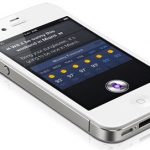
In one Samsung iPhone-mocking "Next Big Thing" commercial, an Apple fan laments: "If it looks the same, how will people know I upgraded?" Maybe that's the point of iPhone 4S -- people aren't suppose to know whether you have the new or older model. If that's the intention, and not some dumb-luck circumstance, then Apple CEO Tim Cook deserves high praise for brilliant, strategic execution. Rather than fraking up by not releasing iPhone 5 last year, Apple may have in iPhone 4S achieved a marketing milestone worthy of industry recognition -- or at least some PhD candidate's dissertation.
It's like this: Analyst data from several sources released this week shows surprising iPhone uptake, whether actual sales or simple consumer intentions to buy. The most compelling comes from NPD, which October/November US retail sales figures are nothing short of shocking. Year over year, Android smartphone OS sales share rose to 60 percent from 45 percent in third quarter 2011. During the same time frame, iOS went from 23 percent to 29 percent sales share. Both operating systems had dipped and rose during that year. But in just two months, October to November, Android fell share from 60 percent to 47 percent, while iOS rose from 29 percent to 43 percent. I see Apple's iPhone 4S strategy, not the new smartphone's actual sales, as the reason.
Apple scares TV manufacturers into Google's open arms
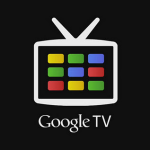
There's something strange happening at Consumer Electronics Show 2012 that many pundits -- and, of course, the Apple Fanclub of bloggers and journalists -- pegged as impossible just six months ago. Even I asked "Who killed Google TV?" after Logitech, the first of two launch partners, lost its shirt, pants and shoes on Revue. The peripherals maker gave up on Google TV, leaving Sony to go it alone. In July 2011, I asserted: "There will be a second life for Google TV", but who could have guessed it would be this much?
At CES, television-set makers are simply falling over one another to be a Google TV partner, as judged by the number of announcements so far. I've got to wonder: How much of that is because of Apple? For months, there have been persistent rumors Apple is working on a TV. Naturally, the ridiculous rumor mill has this unannounced consumer electronics gear as being trendsetting -- genre transforming -- all sight unseen. Hold on, someone needs to grab me before I fall over laughing. But fear of anything Apple these days is quite the motivator, particularly if the fruit-logo company might stomp into your entrenched business. Better to adopt Google TV fast than be Apple roadkill.
Windows Phone beats iPhone to 4G LTE
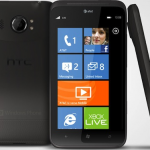
Currently there are 11 4G LTE phones -- two from AT&T and 9 from Verizon -- available from major US Carriers, and they're all Androids. Even more are coming, some this month, and again they're all Androids. There is no LTE iPhone and until today's HTC Titan II announcement, nothing running a Microsoft operating system. Finally, prospective Windows Phone buyers can get super-fast cellular data. iPhone users are out of luck. Well, maybe. HTC says the LTE Windows Phone is coming to AT&T "in the coming months". Who knows, iPhone 5 LTE could come sooner.
Like its predecessor, Titan II will be available from AT&T, which is good for HTC, Microsoft and Windows Phone. The brawny 4.7-inch-display smartphone will only compete with two other LTE handsets there -- HTC Vivid and Samsung Galaxy S II Skyrocket. Better to be one of three at AT&T than one of 10+ at Verizon. That's assuming AT&T adds no other LTE smarphones "in the coming months", before Titan II goes on sale. Last week I posted the "7 things I really don't want to see at CES". Among them: Products announced that don't ship for many months later.
Find My iPhone works!
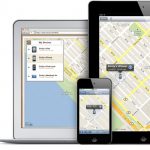
Someone stole my daughter's iPhone 4S on Wednesday. We recovered it today, Saturday. The phone was a lost cause if not for Apple's cloud recovery service, which worked in an unexpected way overnight.
The saga started in the school office, where my daughter works for one period every other day. She often has out her phone and feels comfortable leaving it at the table where she busies; the teens working there are all fairly honest. On this particular day, she stepped out for five minutes and returned to find the phone gone. Sitting where she had been: Another teen applying to attend the school, with her mom close by. My daughter used a friend's phone to call hers, but the sound was off. The iPhone 4S was gone.
10 resolutions Apple should make for 2012
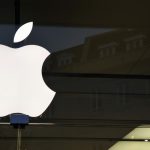
This is the first year Apple will operate without its co-founder and leader Steve Jobs. To move forward without him, what does the company need to do in the new year? While I've never fancied myself a prognosticator, I do have a few suggestions on what the Cupertino, Calif. company needs to do.
Some have to do with changing the way Apple works and does business; others require some hard decisions on Apple's product lines. Either way, 2012 will give us the first glimpse whether or not Apple can move on from its past and iconic leader.
Hey, Santa, which tech execs were naughty or nice this year?

Christmastime is coming soon, Santa's on his way. As jolly old St. Nick makes his rounds of Silicon Valley this weekend, which tech CEOs will be on his "Naughty" and "Nice" lists this year? We here at BetaNews are secret elves, and we'd like to help out the man in red by giving our opinion on who should get what they asked for, and who needs a big lump of coal.
Some of our picks are pretty obvious, while others may surprise you. Our list is intended to make you think and to spur some discussion on the trends in tech during 2011. Either way, we want to hear from you on who you think deserves to be on this list. We'll follow up Friday with your responses.
The best two tech ads this holiday are from Apple and Google

Unsurprisingly, they promote smartphones -- iPhone 4S and Google Nexus.
Yeah, I know, this is a bit fluffy stuff, but I'm flu-stricken today and barely able to sit up to type. Besides, these are both really great ads that stand out for creativity and how well they demonstrate product benefits. Good marketing is often about great storytelling and, with smartphones like these, communicating a single benefit watchers will remember. You'll remember both these commercials, surely.
Mac App Store:100M downloads, Windows Store: 0
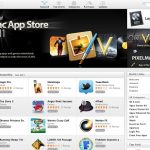
Seven years have passed since I first strongly suggested to Microsoft product managers that they should add a software applications store to Windows. The idea didn't go over too well. Today, Apple showed Microsoft why an app store makes loads of sense inside the operating system and why Windows Store's February launch is way too late.
Apple made Mac App Store an add-on to OS X 10.6 Snow Leopard in January, and shipped it as part of successor Lion in July. Today, the company claimed 100 million downloads. Caveat, and this is where marketing mumbo jumbo needs closer look: The company doesn't say "unique downloads". I paid for Lion once and installed it on three Macs, as licensing terms permit. That's three downloads from one purchase. Redownloads jack up the numbers.
So much for Apple, Samsung sells 300M handsets
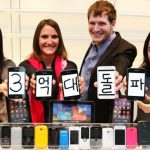
The year isn't over yet, but Samsung is celebrating 300 million handset sales -- a record for the company and a number not to be trifled. The South Korean manufacturer touts success of its Galaxy S and S II lines -- the latter which is available in more than a half dozen iterations globally, and expanding, when adding LTE and white models. AT&T offers two different S II models, 4.3-inch HSPA+ and 4.5-inch LTE.
While an achievement, Samsung sees solid rather than exceptional growth -- so far. The company sold 281 million handsets in 2010, according to Gartner. Still, second and third quarters were exceptional, even by the expectations set for Apple's iPhone. In Q2, Samsung's homegrown Bada smartphone OS -- not yet then a year old -- outsold Windows Phone, according to Gartner. In third quarter, Samsung sold 24 million smartphones -- nearly 7 million more than Apple.
Apple is the new Dell
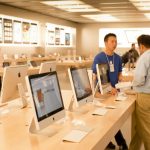
I sat eating lunch with coworkers when we saw the news over the wire. Dell announced the end of retail sales, taking its business direct to customers -- that was 1994. We laughed about the craziness. Compaq dominated the PC market, leveraging a huge partner network of dealers, resellers and retailers. Cutting out the middleman meant more margin for Dell, and presumably lower costs for businesses and consumers, but how would the brand maintain visibility without shelf space? Dell direct seemed destined to failure.
Succeed it did, making Dell the No.1 PC maker, based on shipments, by decade's end. Dell didn't just go direct but redefined PC distribution, manufacturing and marketing. The Austin, Texas-based company later adopted real-time manufacturing logistics that made competing operations from Compaq, HP and IBM look antiquated. While their managers guessed how many PCs to produce and ship to the channel, Dell provided component suppliers access to orders in real time, which kept the company from over-ordering, dramatically cut component costs and let customers configure exactly what they wanted. More than a decade after Dell's high (and today's subsequent low), Apple distribution, manufacturing and marketing is the envy of competitors. Both companies achieved similar supply-chain dominance, but theirs is a fascinating study of similarities and contrasts.
© 1998-2025 BetaNews, Inc. All Rights Reserved. Privacy Policy - Cookie Policy.